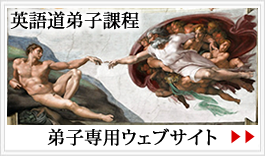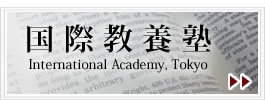Characteristics of a Bicameral Legislature under the Constitution of Japan of 1946
Article of 41 of the Constitution of Japan established in 1946 provides that “the Diet shall be the highest organ of state power, and shall be the sole law-making organ of the State.” The Diet is the highest national organ, but it doesn’t mean that the Diet is legally granted to freely use (abuse) the state power at all.
It is a well-known fact in the world that Japan constitutionally possesses the “separation of three powers” as a sovereign state under the constitution of Japan established in 1946 after the Pacific War (1941-1945). These three separated powers are 1) “the Diet” as the legislative power, 2) “the Cabinet” as the administrative power (Article 65 of the same provides that “Executive power shall be vested in the Cabinet.”) and 3) “Judiciary” as the judicial power (Article 76 of the same provides that “the whole judicial power is vested in a Supreme Court and in such inferior courts as are established by law”).
Article 42 of the same provides that “the Diet shall consist of two Houses, namely the House of Representatives and the House of Councillors.” The Members of both houses are firmly elected by direct vote of the Japanese people. As to their terms of service, it is provided as four years for the member of the House of Representatives (Article 45 of the same), likewise, it is provided as six years for the members of the House of Councillors (Article 46) as well.
Regarding the “state organ” the Diet, it is indispensably very important to grasp the existence of the Diet as the following essential legal meanings, the Diet shall be “the highest organ of state power,” and “the sole law-making organ of the State.” This means that the Japanese people have the “sole way” to establish laws through the Diet members of the two Houses justly voted and equally elected by the Japanese people. This legally (constitutionally) keeps the “genuine democracy” for the sake of the people in this country. Obviously, this is a matter of “indispensability” at any cost.
The Diet members are expected to constitutionally grasp some of the important meanings of law such as the following basic legal questions, 1) the most important role law (statute law) jurisprudentially possesses in consideration of the history of mankind, 2) the significance of the concept, “rule of law” in comparison with “rule by law,” 3) the meaning and the quintessence of “citizen.”
Currently, are the Diet members humbly working for the sake of realizing an ideal democracy for the Japanese people? This is a crucial political question the people should not forget from generation to generation at all times without a doubt.
Is it just an “armchair dream” to optimistically expect having such ideal future Diet no citizen seriously questions regarding their service at all? All we know now is that there is no such an ideal law-making state organ in the world at all times. This is a “nature” of the man-made society nobody can ameliorate at all.




